- News
- Reviews
- Bikes
- Accessories
- Accessories - misc
- Computer mounts
- Bags
- Bar ends
- Bike bags & cases
- Bottle cages
- Bottles
- Cameras
- Car racks
- Child seats
- Computers
- Glasses
- GPS units
- Helmets
- Lights - front
- Lights - rear
- Lights - sets
- Locks
- Mirrors
- Mudguards
- Racks
- Pumps & CO2 inflators
- Puncture kits
- Reflectives
- Smart watches
- Stands and racks
- Trailers
- Clothing
- Components
- Bar tape & grips
- Bottom brackets
- Brake & gear cables
- Brake & STI levers
- Brake pads & spares
- Brakes
- Cassettes & freewheels
- Chains
- Chainsets & chainrings
- Derailleurs - front
- Derailleurs - rear
- Forks
- Gear levers & shifters
- Groupsets
- Handlebars & extensions
- Headsets
- Hubs
- Inner tubes
- Pedals
- Quick releases & skewers
- Saddles
- Seatposts
- Stems
- Wheels
- Tyres
- Health, fitness and nutrition
- Tools and workshop
- Miscellaneous
- Cross country mountain bikes
- Tubeless valves
- Buyers Guides
- Features
- Forum
- Recommends
- Podcast
review
£2,999.00
VERDICT:
A lightweight race machine that's also comfortable for covering the miles
Weight:
7,200g
Contact:
At road.cc every product is thoroughly tested for as long as it takes to get a proper insight into how well it works. Our reviewers are experienced cyclists that we trust to be objective. While we strive to ensure that opinions expressed are backed up by facts, reviews are by their nature an informed opinion, not a definitive verdict. We don't intentionally try to break anything (except locks) but we do try to look for weak points in any design. The overall score is not just an average of the other scores: it reflects both a product's function and value – with value determined by how a product compares with items of similar spec, quality, and price.
What the road.cc scores meanGood scores are more common than bad, because fortunately good products are more common than bad.
- Exceptional
- Excellent
- Very Good
- Good
- Quite good
- Average
- Not so good
- Poor
- Bad
- Appalling
The NeilPryde Bura SL is a lightweight race machine, but it's also comfortable enough that you can cover miles and miles at speed without issue. For the quality of the frameset it could really do with lighter wheels, but otherwise it's a great package.
This latest Bura SL has been given a bit of a facelift – but it's not just on the surface that changes have happened. The frame and fork have been completely re-engineered to focus on the ratio between stiffness and weight. It certainly has a lot of one and very little of the other.
Ride
The Bura SL frameset is up there among the lightest, at a claimed 710g for a small (760g for the large) and a further 300g for the full-carbon fork. Even with its full build here in a medium guise, the whole bike only comes in at 7.2kg (15.9lb) with entry-level wheels.
Weirdly, though, to me it didn't feel like a superlight bike, even when I swapped the wheels out for some light carbon fibre ones. Compared with the Canyon Ultimate CF SLX 9.0 I tested a few months back, the NeilPryde doesn't have the same snappiness under acceleration and when climbing. It might be the carbon layup or grade or whatever's behind the extra £600 and almost 1kg weight difference – the wheels perhaps – but with the Canyon you stamped on the pedals and bang, off it went; while the Bura SL is quick, it didn't feel as responsive under acceleration.
The Bura SL is a very capable machine, though. It's hugely efficient over varied terrain and one of those bikes that can cover a hell of a lot of mileage without you really noticing. A lot of this is down to its comfort in the saddle.
Like the Ultimate, the NeilPryde has an overbuilt bottom half of the frame – down tube, chainstays and bottom bracket area – while softening the upper half, most notably the pencil-thin seatstays, which are designed to flex to reduce the amount of road vibration travelling through to the rider.
When you're seated you can really feel the seatstays doing their job – I occasionally found myself looking down at the rear tyre to see if I'd got a slow puncture. These high levels of comfort mean your muscles aren't constantly getting battered about so you suffer less fatigue.
When you need a little bit of oomph, though, out-of-the-saddle climbing or acceleration for instance, then you certainly won't be feeling any flex around the Press-Fit 86 bottom bracket area.
And this is one of those bikes that seems to respond better to out-of-the-saddle climbing too, no matter how steep the hill. Even on those shallow false flats it often feels more efficient to stand up and gently rock the bike from side to side. Some bikes just seem to be like that.
When the speed increases, the NeilPryde deals with things without fuss. Up front you have a tapered head tube for increased stiffness under load caused by direction changes and high speed braking. This keeps the bike tracking on your chosen line through the bends, although it just lacks that little bit of precision to make it a truly great bike to ride.
Frame and fork
The Bura SL is manufactured from what NeilPryde calls C6.9 grade carbon fibre, a mixture of Toray 46T and 60T high modulus uni-directional carbon fibre no less. Hi-modulus carbon fibres see more refinement than lower quality grades, with more fibres being packed into the same size space, increasing its stiffness per cross-sectional area. Less material can be used (therefore less weight) for the same stiffness, or you can go the other way: more material, more stiffness for the same weight.
NeilPryde hasn't just attacked the stiffness to weight ratio via the use of the carbon grade, though – notice the ribs and gussets added behind the head tube/top tube, top tube/seat tube and even down at the chainstay/seatstay junction. NeilPryde calls it Exoskeleton, with the position and layup of the structural enhancements being decided by FEA (finite element analysis) where a computer program works out specific loadings on a 3D CAD model before even prototypes have been built, a hugely cost effective way of designing.
Another way NeilPryde has increased the stiffness to weight ratio is by minimising the number of tube joins – more tubes means additional carbon to bond each join. One place this can be seen is the rear triangle with its one-piece stays. Part of the seatstay, dropout and chainstay is moulded in one piece, ensuring strength throughout an area that sees a large amount of loading.
Tube shape and size hasn't been ignored either, most noticeable when looking at the down tube. Yes it's massive in diameter throughout its length, thanks to the oversized bottom half of the head tube and huge bottom bracket shell area, but that's not all. The tube is actually asymmetric, with more material one side of the centre line than the other as it approaches the BB junction. This puts more material where it's needed to combat the extra loads from the drivetrain. It's most notable to the eye when you look at the three – yes, three – water bottle bolts as they appear offset. Having three bolts gives you two bottle mounting options, with the lower being apparently more aerodynamically efficient.
As far as geometry goes, you can see why the Bura SL has such a racy riding style, with the medium size in for test having a 545mm top tube, a 500mm seat tube, and a 140mm head tube. The chainstays are short at 405mm, and so is the wheelbase at 975mm.
The stack (the vertical distance from the centre of the bottom bracket to the top of the head tube) is 555mm and the reach (the horizontal distance between those points) is 381mm. Those figures suggest you'll get a performance orientated position very close to that of a peloton-ready race machine with a ratio of 1:45.
Finishing kit
For your £2,999 your frame will come adorned with a full Shimano Ultegra mechanical groupset, FSA SL-K components and a Fizik Arione saddle. All top end stuff that flatters the frameset.
There is little left to say about the Ultegra group that we haven't already covered, but it is basically a brilliant groupset with near-Dura-Ace performance at a greatly reduced price.
The Bura SL uses a 52/36 chainset option paired to an 11-28 cassette to give a great spread of gears for the type of quick riding the NeilPryde is aimed at. The shifting is spot on even under load, and the brakes are some of the best dual callipers out there.
The matching FSA kit is a nice touch too, where it is all too common to see generic alloy components gracing top end frames. Here the FSA handlebar is carbon fibre and very nice it is too, with very little in the way of flex but plenty of comfort.
The stem is alloy, the seatpost carbon fibre. It is held in the frame by way of an expanding bung and, once tightened, stays in position.
I'm a big fan of Fizik and have been riding Ariones on and off since they were originally released. I like the extended length, and this one was great straight out of the box.
Wheels and tyres
The Fulcrum Racing 5 wheels are a bit of a let-down at this price point. A frame of this quality requires something much better than a couple of hundred quid's worth of wheels. They take the edge off the bike's climbing and acceleration because of their weight, though they are solid performers that will stand up to a lot of abuse, and would make a great set of training wheels.
During testing I swapped them out for some Fulcrum Speed 40T carbon tubs, which weigh a mere 1,213g, making the bike a bit lighter and more responsive (although not to the extent that I'd like).
Tyre-wise, NeilPryde has specced some from Clement, an iconic name making a return to the industry thanks to new owners. The Strada LGGs aren't the company's top end tyres but, as with the wheels, they are solid, dependable performers that grip well in the wet and dry and seem to offer no issues when it comes to rolling resistance.
Overall
The Bura SL is a very good bike, and if you want a lightweight race machine that is so comfortable you can cover miles and miles at speed without issue, then it should definitely be on your one-to-consider list. Its wheels can do with an upgrade, but other than that I'd be happy with it in its standard specification. It's very well engineered and an excellent example of the whole stiffness/comfort/weight balance.
My only criticism – possibly because of that balance – is that I like a little more involvement with the bike I'm riding, and each ride left me a little underwhelmed. You might feel completely differently and want a bike that just gets on with the job without fuss, but I always like a bit of excitement too, to get the adrenaline flowing; the Bura SL didn't quite do that for me. That's not to say it isn't very good, though, and it certainly achieves what NeilPryde has set out to do: it's fast, it handles well and you can't fault its comfort levels.
Verdict
A lightweight race machine that's also comfortable for covering the miles
road.cc test report
Make and model: NeilPryde Bura SL
Size tested: 55
About the bike
State the frame and fork material and method of construction. List the components used to build up the bike.
FRAME BURAsl – C6.9 TORAY UD
FORK BURAsl – C6.9 TORAY UD (1-1/8 to 1-1/4)
SIZES XS, S, M, L, XL
FRAME COLOUR BLACK – MATT
CRANKSET ULTEGRA 6800 52/36T
DERAILLEURS ULTEGRA 6800
BRAKES ULTEGRA 6800
SHIFTERS ULTEGRA 6800
CASETTE CS-5800 12/25T
CHAIN FSA TEAM ISSUE
BOTTOM BRACKET FSA CF86/CZ
SEATPOST FSA SL-K SB20
STEM FSA SL-K
HANDLEBARS FSA SLK COMPACT
SADDLE FIZIK ARIONE R7
WHEELS FULCRUM RACING 5
TIRES CLEMENT STRADA LGG 25C
Tell us what the bike is for, and who it's aimed at. What do the manufacturers say about it? How does that compare to your own feelings about the bike?
NeilPryde says: "Start planning your escape with the all-new BURAsl stiff and ultra-lightweight road bike. Re-engineered for 2016, the new BURAsl redefines the high-performance road category with asymmetric design and a new level of stiffness.
"Wherever the road takes you, the new BURAsl is the perfect bike for your getaway. Its 710g ultra-lightweight chassis combined with unsurpassed stiffness and all-day-long compliance makes the BURAsl the perfect companion '' no matter if you're looking to escape on an alpine climb, in the final sprint or on your Sunday morning ride."
The Bura SL feels like a top flight race bike in terms of speed and acceleration yet thanks to its high levels of comfort and neutral handling it's a bike that is very easy to ride quickly.
Frame and fork
Overall rating for frame and fork
8/10
Tell us about the build quality and finish of the frame and fork?
The Bura SL has a very high quality, well built and designed carbon frame that manages to offer stiffness without being overly harsh. You don't get any road buzz travelling through the frame and it feels solid as you hit potholes and rough road surfaces.
Tell us about the materials used in the frame and fork?
Both the frame and fork use Toray C6.9 grade uni-directional carbon fibre.
NeilPryde says, "C6.9 is exclusively composed of the highest-modulus Toray© 46T and 60T, unidirectional carbon fiber possible in bike manufacturing. This blend is 18% stiffer than C6.7 for the same weight, and allows our engineers to ultimately develop significantly lighter frames without sacrificing stiffness."
Tell us about the geometry of the frame and fork?
Our medium model comes with a 545mm effective top tube, 140mm head tube, and steep seat and head angles, creating some racy geometry. The stack to reach ratio comes in at 1:45 which means it's not quite as aggressive as some race bikes we've tried in terms of the riding position.
How was the bike in terms of height and reach? How did it compare to other bikes of the same stated size?
The Bura SL comes in pretty much as I'd expect for a medium in terms of tube lengths and setup.
Riding the bike
Was the bike comfortable to ride? Tell us how you felt about the ride quality.
The ride quality is very good indeed, with the carbon fibre layup doing a good job of reducing road buzz before it gets through to the rider. The narrow seatstays also mean that they flex for added comfort.
Did the bike feel stiff in the right places? Did any part of the bike feel too stiff or too flexible?
The NeilPryde is very stiff where it needs to be – bottom bracket, down tube, chainstays... for power transfer.
How did the bike transfer power? Did it feel efficient?
Out-of-the saddle efforts don't show up any issues with power transfer.
Was there any toe-clip overlap with the front wheel? If so, was it a problem?
Yes, no major problems but you have to remember when you are moving slowly through traffic, for instance.
How would you describe the steering? Was it lively, neutral or unresponsive? Neutral.
Tell us some more about the handling. How did the bike feel overall? Did it do particular things well or badly?
The handling is pretty good, very neutral and easy to live with on those longer rides when fatigue can be an issue. High speed handling wasn't as crisp as I expected, a little muted mid-bend.
Which components had the most effect (good or bad) on the bike's comfort? would you recommend any changes?
I find the Fizik Arione saddle a very comfortable design.
Which components had the most effect (good or bad) on the bike's stiffness? would you recommend any changes?
The FSA handlebar felt very stiff for a carbon fibre design.
Which components had the most effect (good or bad) on the bike's efficiency? would you recommend any changes?
The Fulcrum 5 wheels are a bit sluggish on a lightweight frame of this calibre, so I'd upgrade those, especially for race day.
Rate the bike for efficiency of power transfer:
9/10
Rate the bike for acceleration:
8/10
Rate the bike for sprinting:
8/10
Rate the bike for high speed stability:
8/10
Rate the bike for cruising speed stability:
8/10
Rate the bike for low speed stability:
7/10
Rate the bike for flat cornering:
8/10
Rate the bike for cornering on descents:
8/10
Rate the bike for climbing:
8/10
The drivetrain
Rate the drivetrain for performance:
9/10
Rate the drivetrain for durability:
8/10
Rate the drivetrain for weight:
8/10
Rate the drivetrain for value:
8/10
Tell us some more about the drivetrain. Anything you particularly did or didn't like? Any components which didn't work well together?
A full Ultegra groupset is nice to see on a bike of this quality, with the performance of the gear shifting and braking complementing the bike.
Wheels and tyres
Rate the wheels for performance:
7/10
Rate the wheels for durability:
8/10
Rate the wheels for weight:
7/10
Rate the wheels for comfort:
8/10
Rate the wheels for value:
8/10
Tell us some more about the wheels.Did they work well in the conditions you encountered? Would you change the wheels? If so, what for?
The Fulcrum wheels are good in their own right but they aren't up to the level I'd expect to find on a bike of this price. To get the most out of the frameset you really need to upgrade to something lighter. They'll make good training wheels though.
Rate the tyres for performance:
8/10
Rate the tyres for durability:
9/10
Rate the tyres for weight:
8/10
Rate the tyres for comfort:
8/10
Rate the tyres for value:
8/10
Tell us some more about the tyres. Did they work well in the conditions you encountered? Would you change the tyres? If so, what for?
The Clement tyres are very good indeed, offering loads of grip and what feels to be very good rolling resistance. They are comfortable too, even at high pressures.
Controls
Rate the controls for performance:
9/10
Rate the controls for durability:
8/10
Rate the controls for weight:
8/10
Rate the controls for comfort:
8/10
Rate the controls for value:
7/10
Tell us some more about the controls. Any particularly good or bad components? How would the controls work for larger or smaller riders?
The FSA SL-K finishing kit is good looking stuff, which also performs to a high level too, with the handlebar getting a special mention for feeling as stiff as alloy.
Your summary
Did you enjoy riding the bike? Yes
Would you consider buying the bike? No
Would you recommend the bike to a friend? Yes
Rate the bike overall for performance:
8/10
Rate the bike overall for value:
7/10
Use this box to explain your score
The NeilPryde Bura SL is a very impressive bike and there is a lot of technology that has gone into its development to create such a top quality frame, and that is what you are paying for. It's fast, comfortable and very easy to live with for the majority of cycling events. Personally, for me, it doesn't have quite the responsiveness and rider involvement I like in a bike of this genre; the geometry is tried and tested so I'd put it down to the carbon fibre grade and/or lay-up. I'd sacrifice a bit of efficiency for more engagement – though I'm guessing many of you would say the exact opposite.
About the tester
Age: 38
I usually ride: This month's test bike My best bike is: Kinesis Aithien
I've been riding for: 10-20 years I ride: Every day I would class myself as: Expert
I regularly do the following types of riding: time trialling, commuting, club rides, sportives, fixed/singlespeed
Since writing his first bike review for road.cc back in early 2009 senior product reviewer Stu has tested more than a thousand pieces of kit, and hundreds of bikes.
With an HND in mechanical engineering and previous roles as a CNC programmer/machinist, draughtsman and development engineer (working in new product design) Stu understands what it takes to bring a product to market. A mix of that knowledge combined with his love of road and gravel cycling puts him in the ideal position to put the latest kit through its paces.
He first made the switch to road cycling in 1999, primarily for fitness, but it didn’t take long for his competitive side to take over which led to around ten years as a time triallist and some pretty decent results. These days though riding is more about escapism, keeping the weight off and just enjoying the fact that he gets to ride the latest technology as part of his day job.






































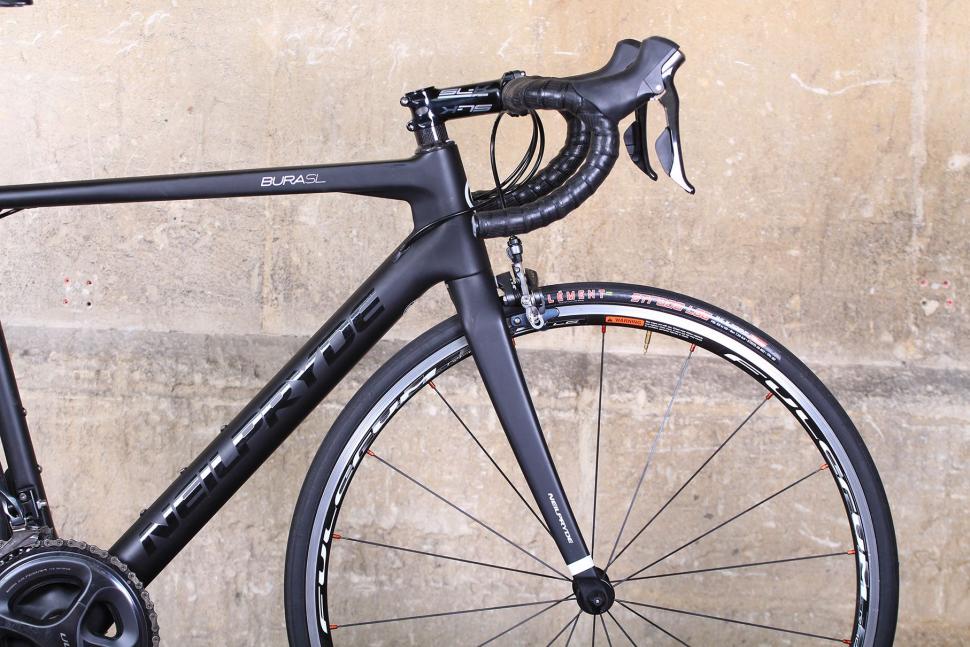
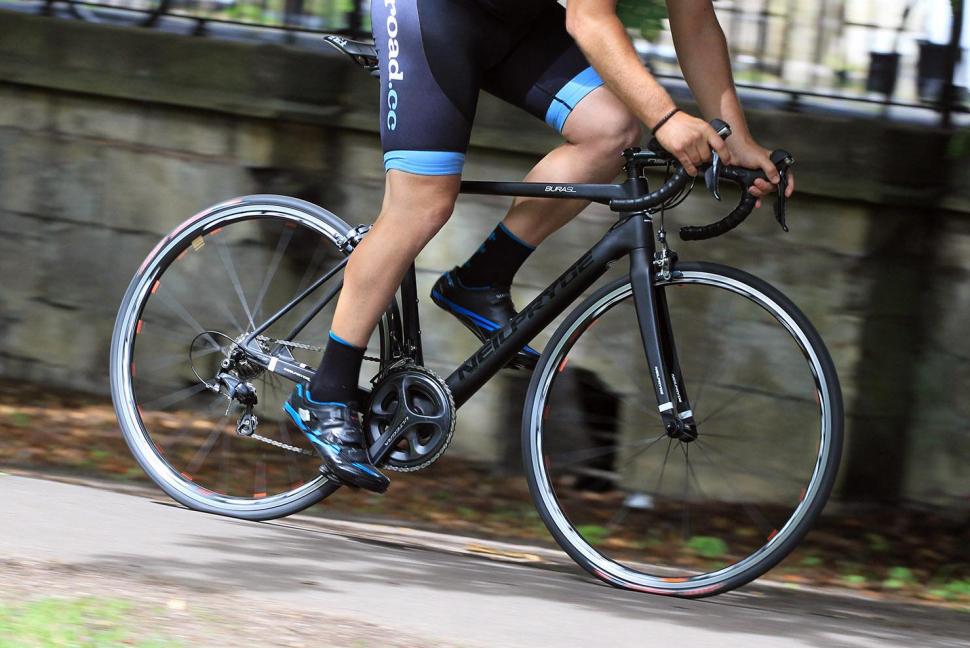
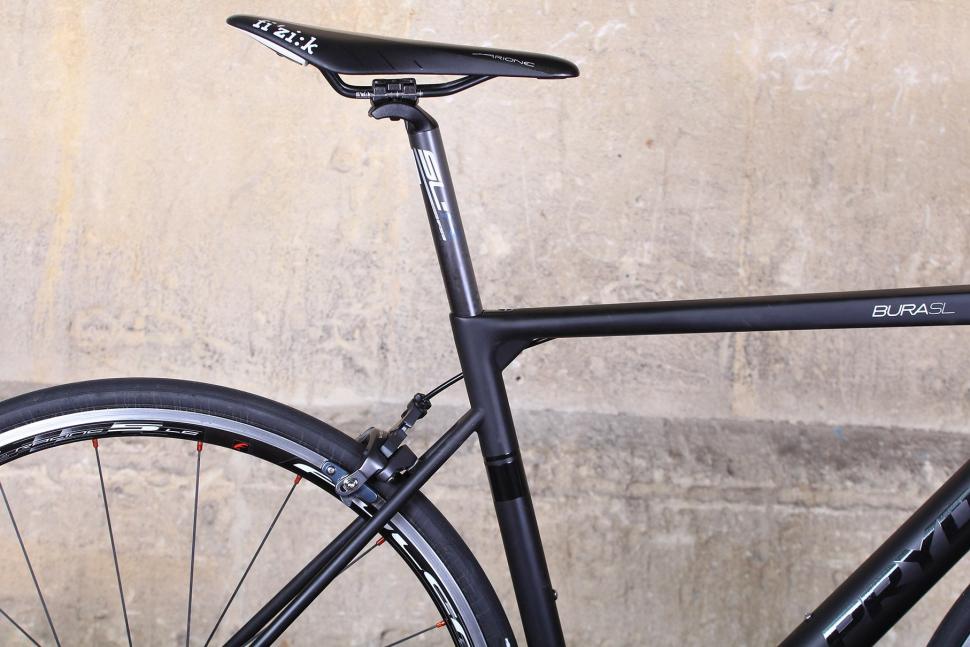

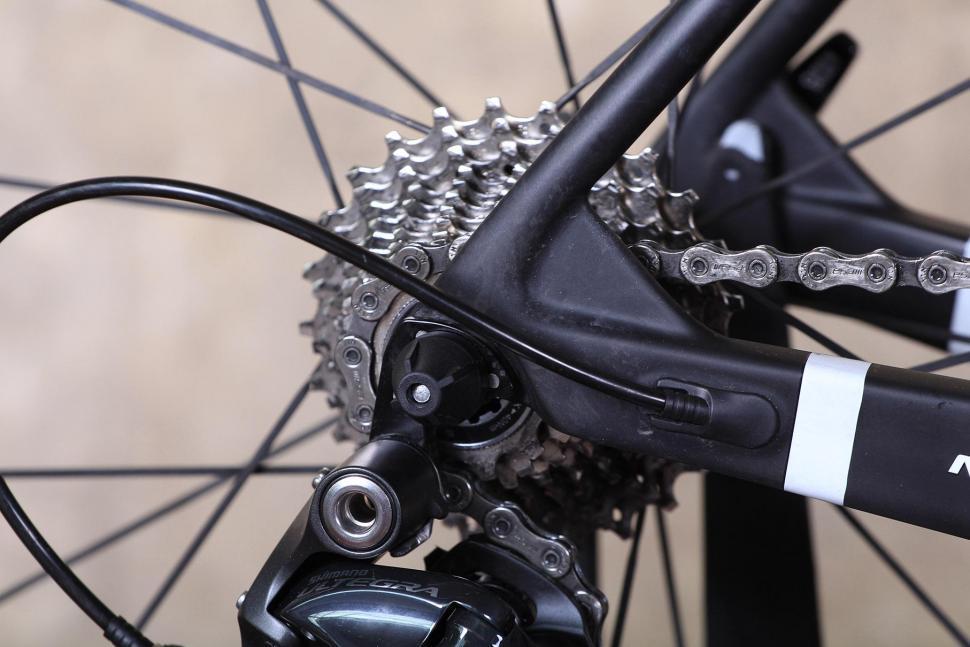
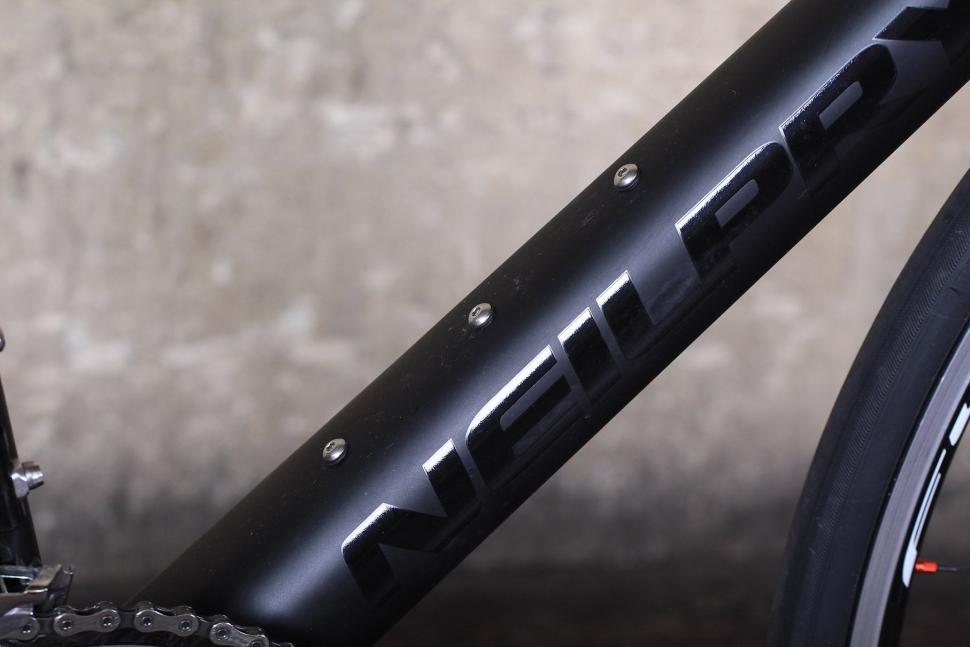
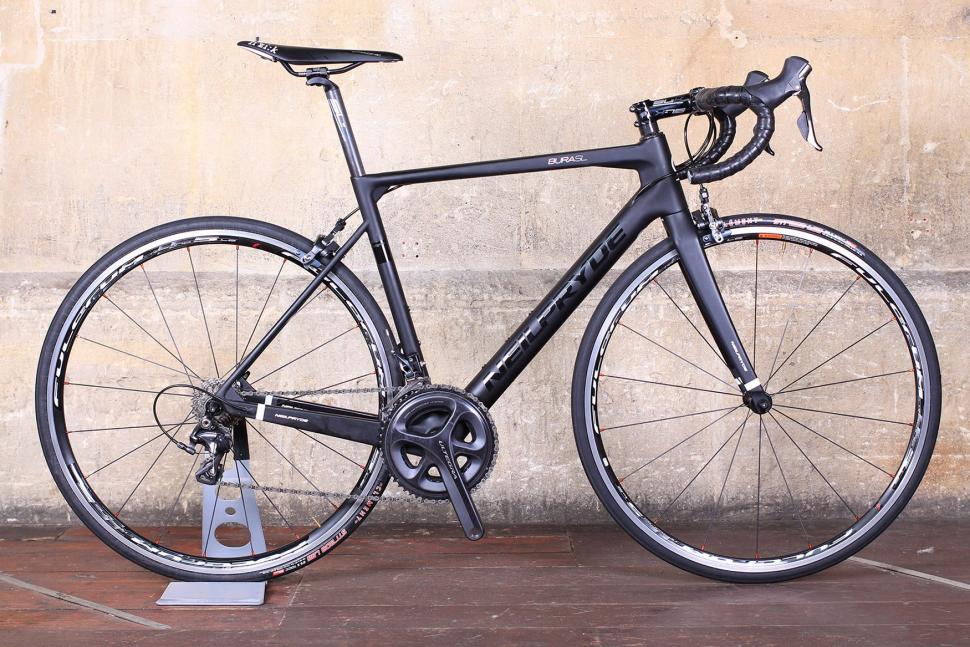
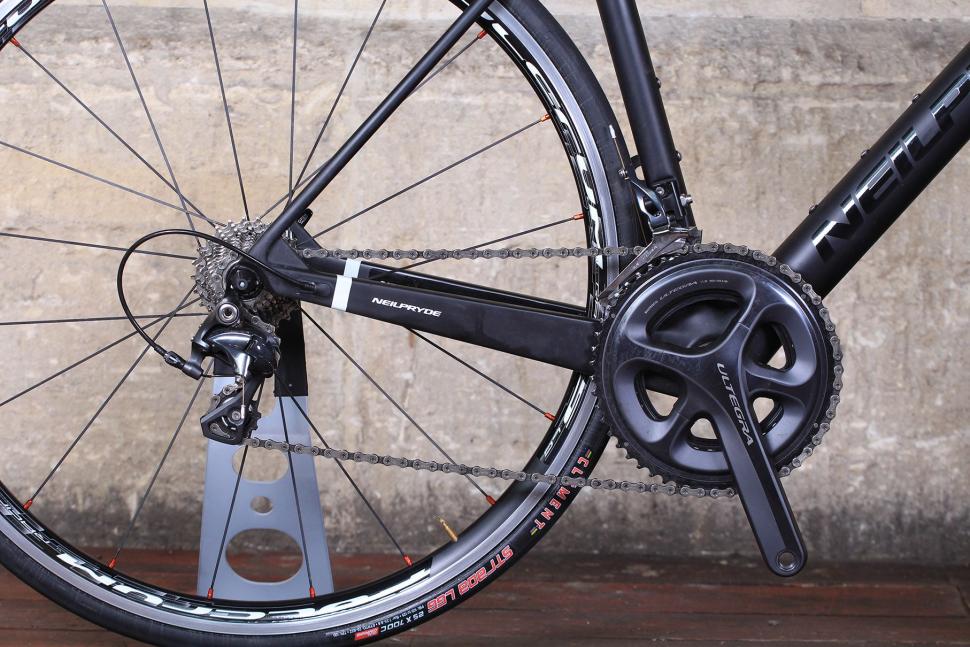
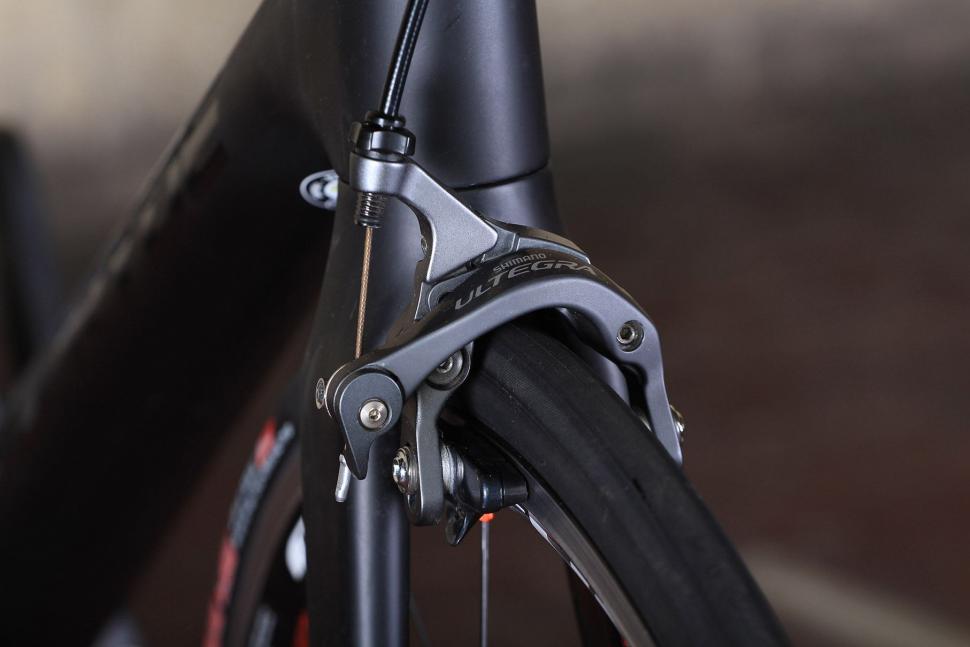
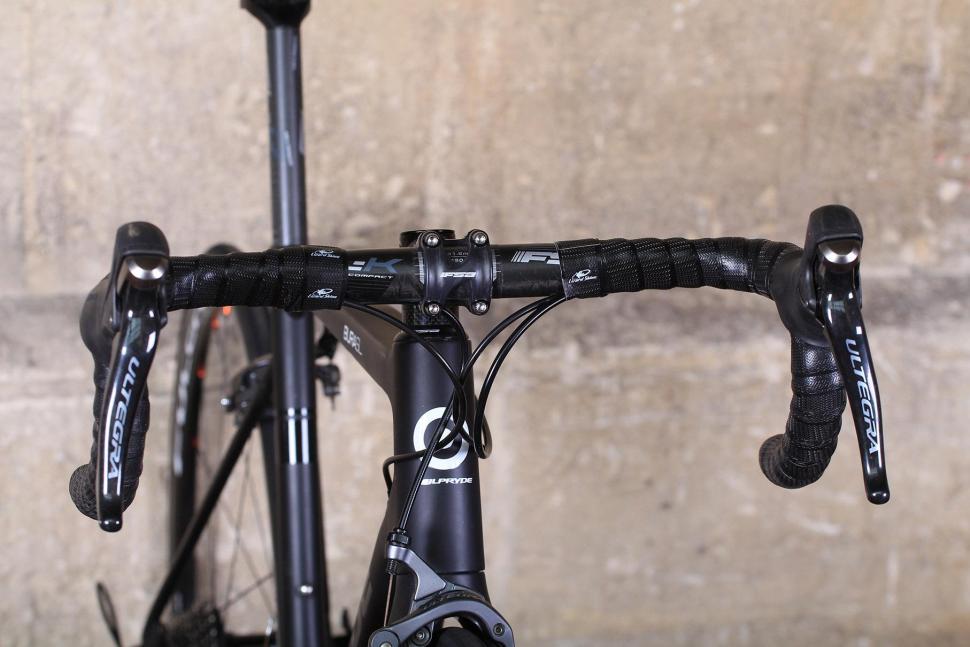
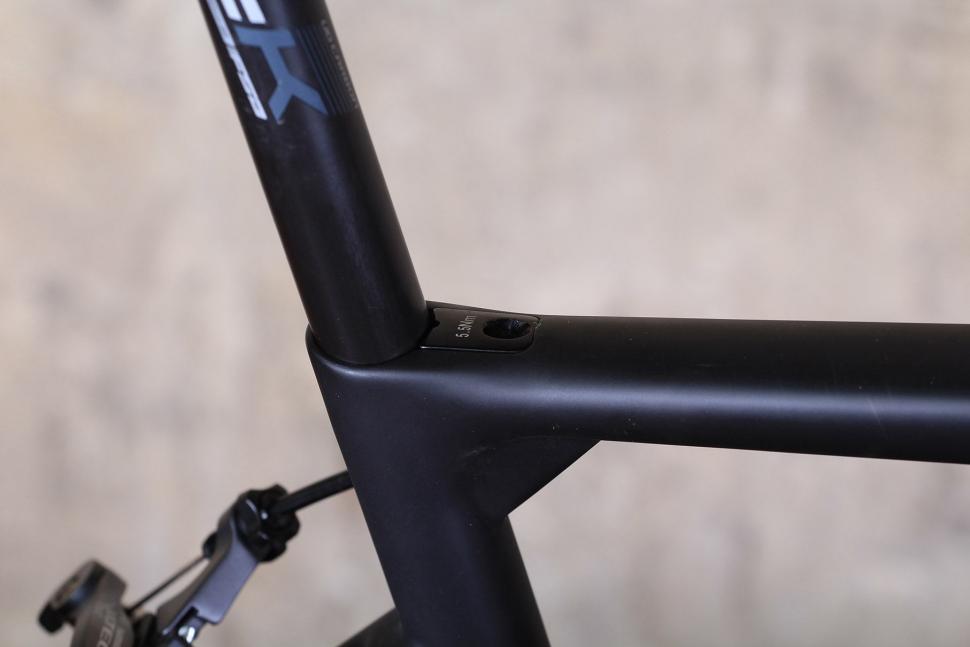
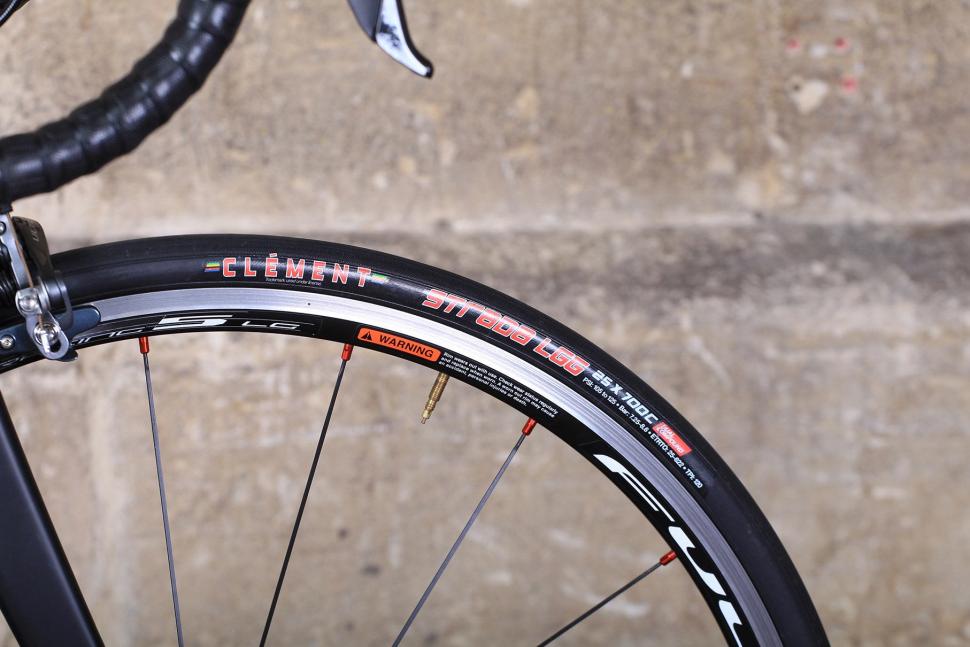
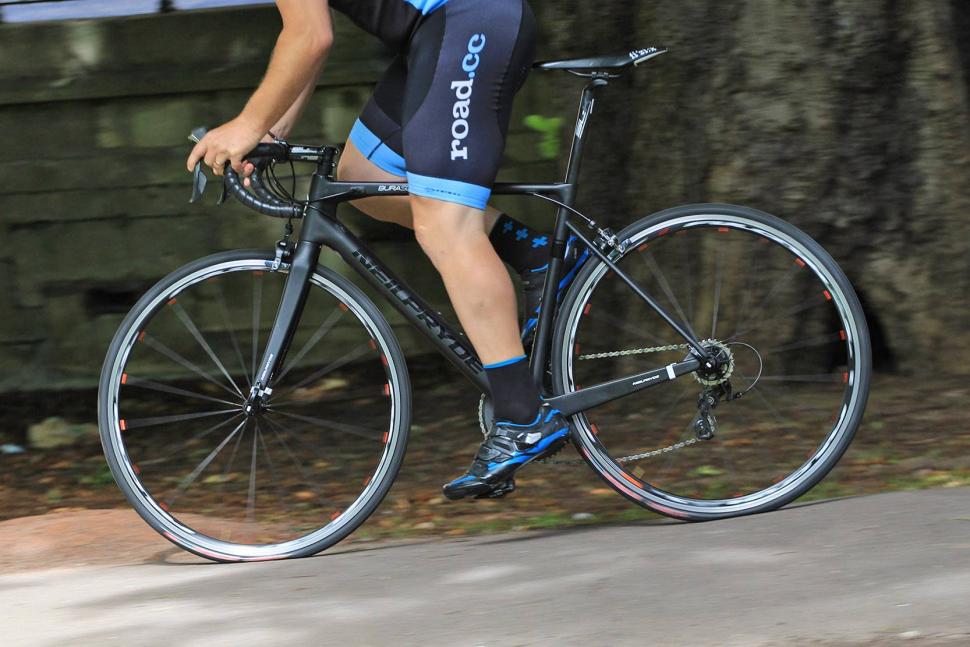
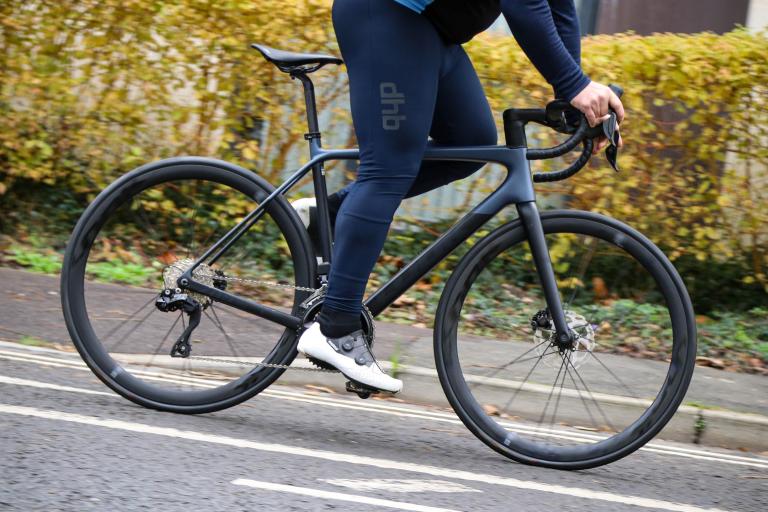
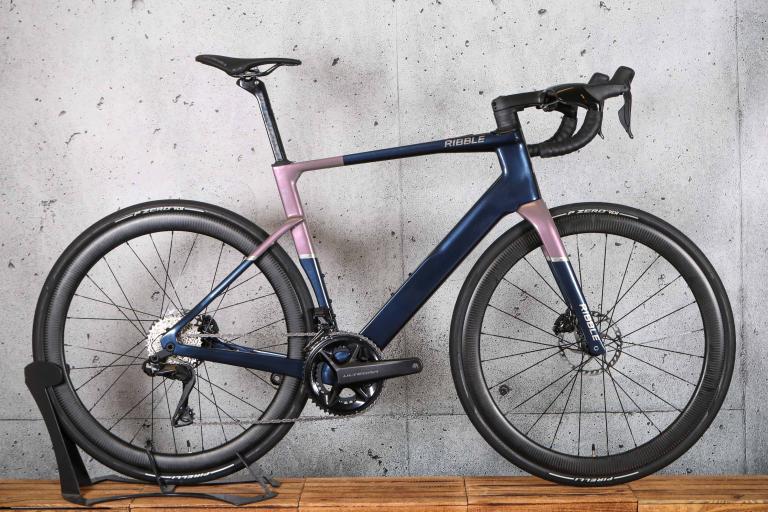
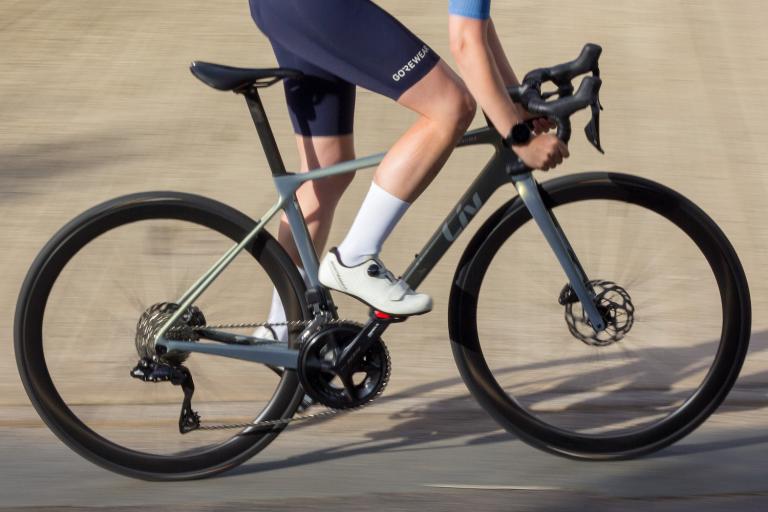
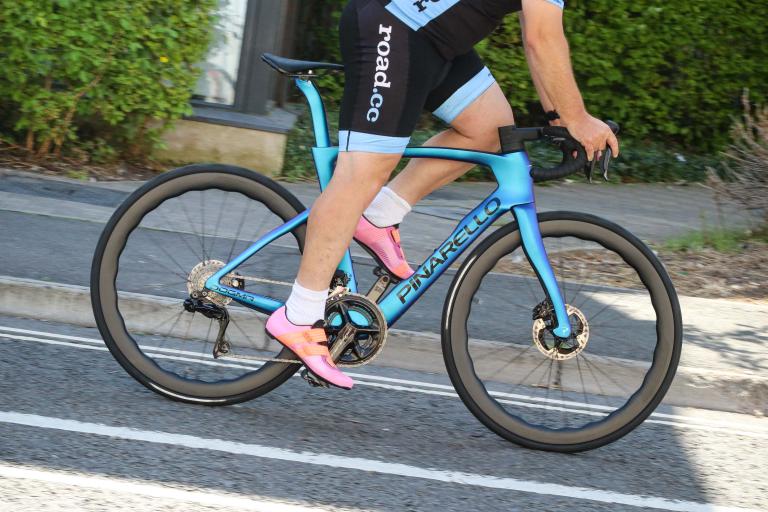
He lost me in the video when he claimed that as you can raise your heel up to 30,000 times during a ride, the lighter weight will save you energy...
Wiveliscombe residents urged to join community protest against new car parking charges...
EE have just offered me TNT sports and Disco+ as part of my mobile package as an add-on, for 2 years. Seemed too good to be true, but it is real....
a loss of concentration is often accepted as mitigation...
It's not the first country to spring to mind I admit but Ridley make some very nice mountainbikes that are being used by the KMC team.
Someone should point out that Sky lose money on their football channels, how does that fit into the bull they put out? And as for watching free to...
To measure chain wear with a ruler you have to be able to measure so precisely that you can tell the difference, measuring from the exact centre of...
"However, he said he was running late and decided to turn left into Norwich Avenue to avoid congestion, when he heard a bang which he said sounded...
Salisbury Shopmobility to reopen after car crashed into wall...
The bars are included although they are apparently 400 mm in all sizes which won't suit everybody. From a recent picture (below) of Astana's...